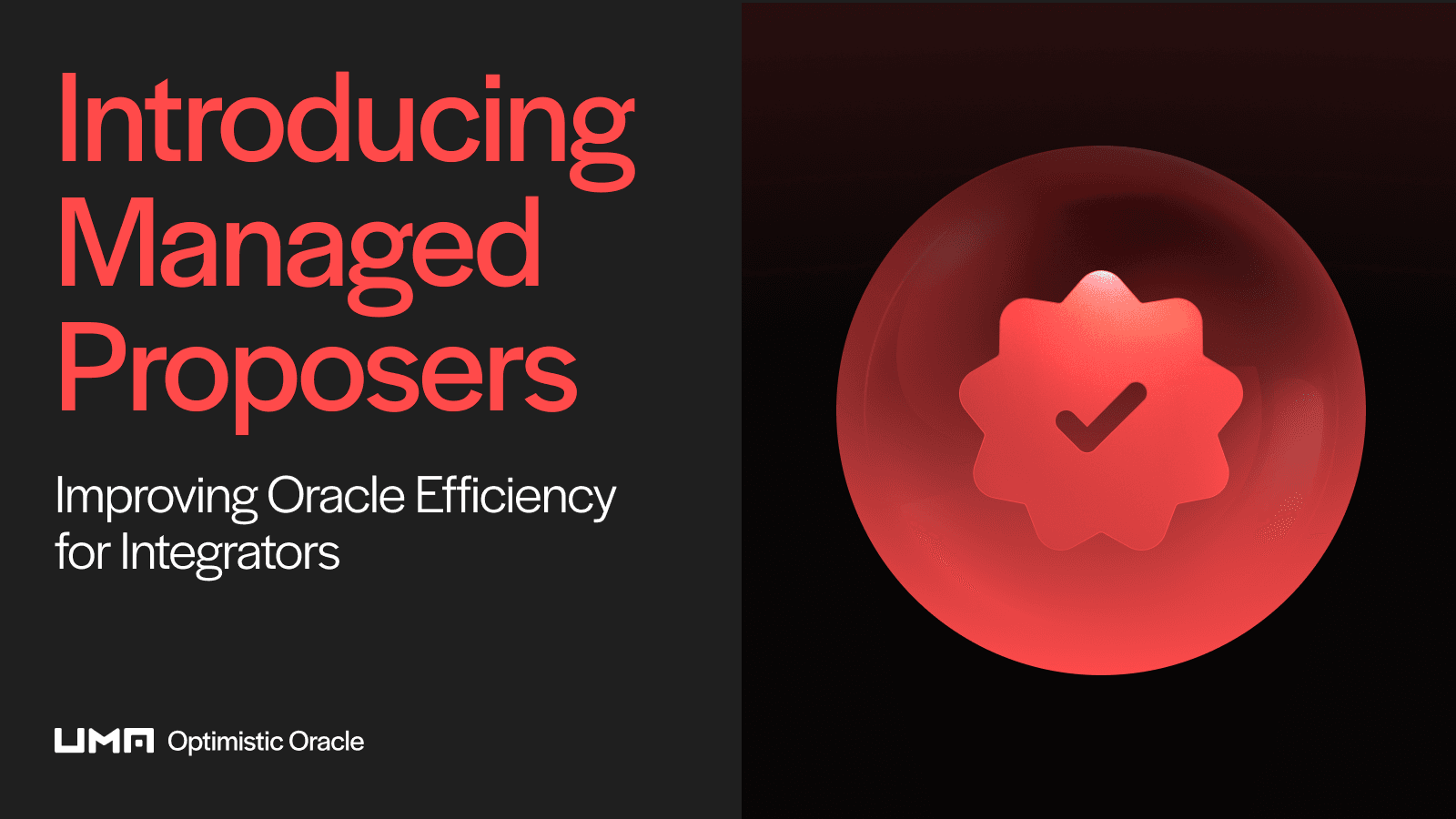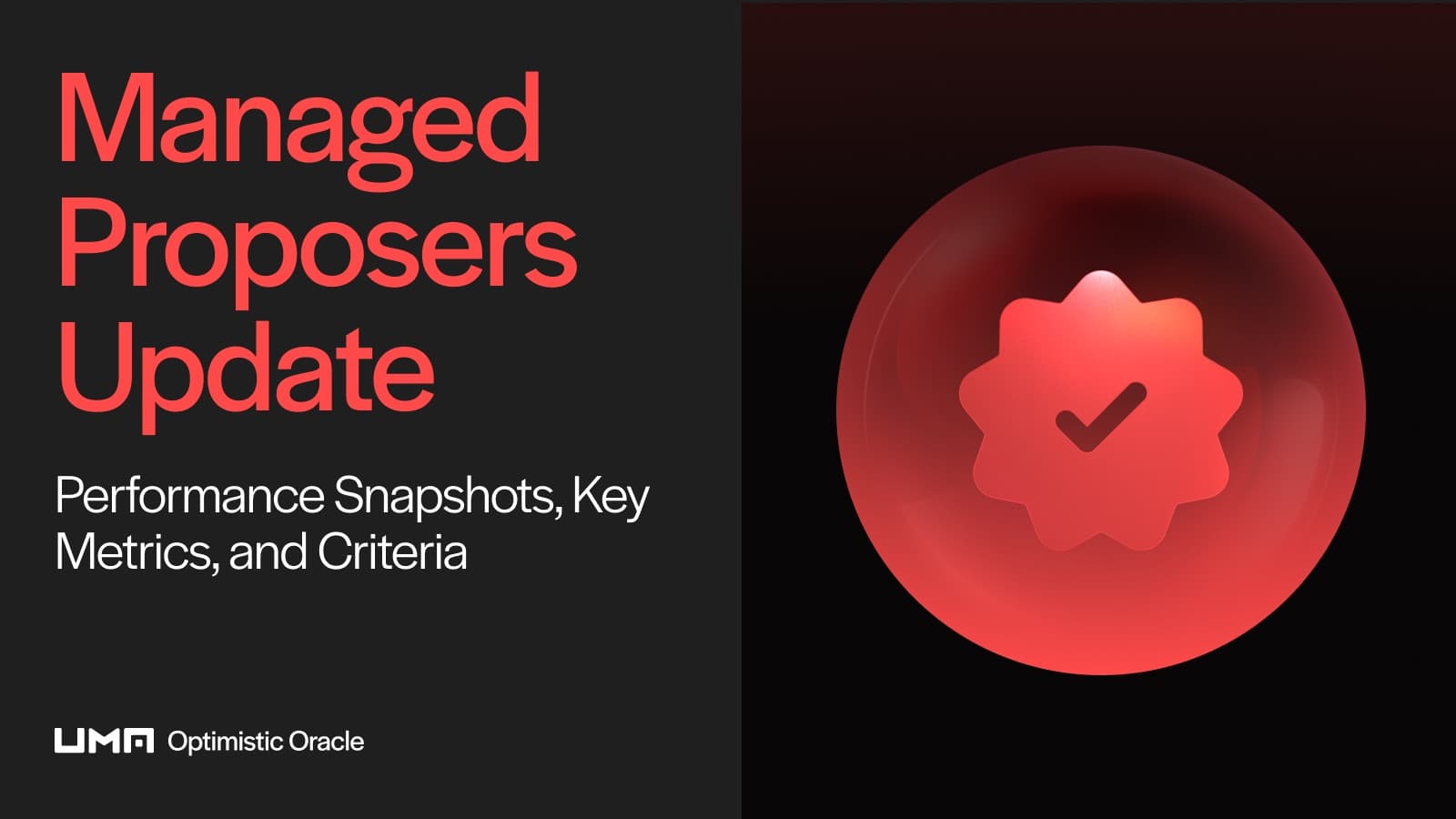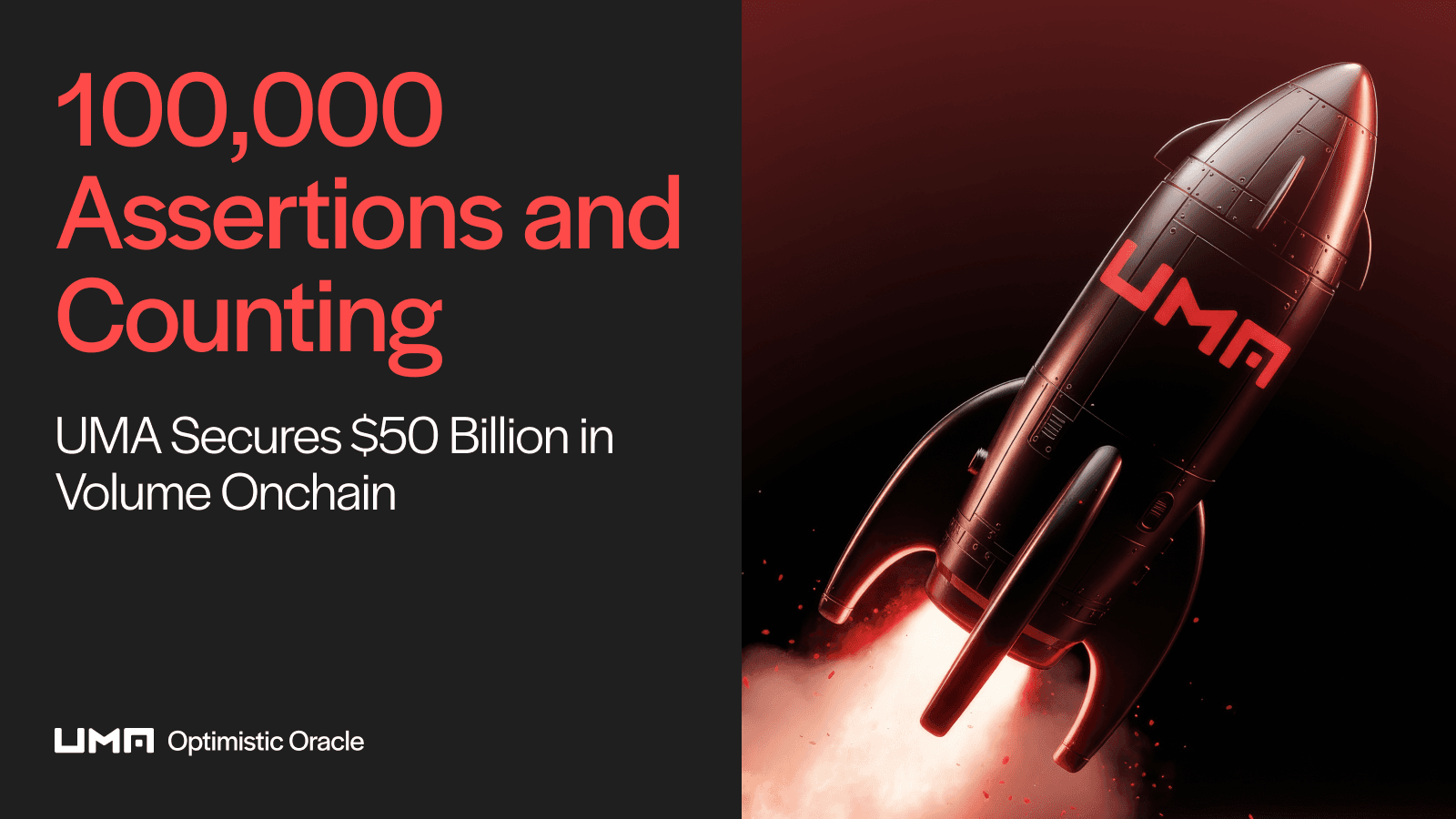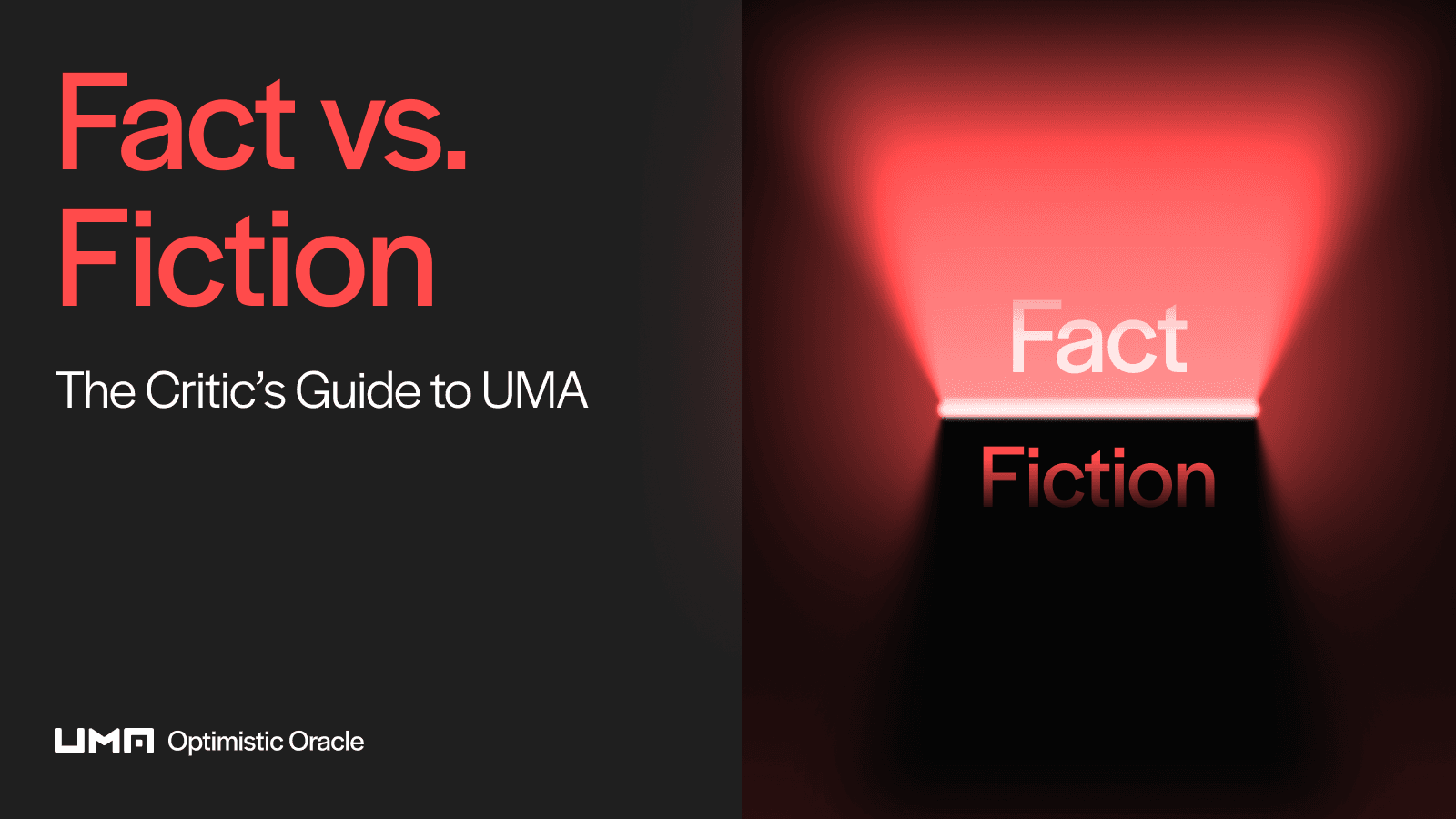Improving Oracle Efficiency with Managed Proposers
TL;DR
We’ve launched an update to UMA’s optimistic oracle (OO) that gives integrations like Polymarket more tools to manage their requests. The new proposer whitelist feature reduces low-quality or premature proposals while preserving UMA’s core principle: open, decentralized dispute resolution.
How Proposing Works in UMA
Polymarket’s current integration with UMA’s optimistic oracle triggers an oracle request at the moment a market is created. These requests can be simple (eg. “Did Candidate X win the election?” ) or more complex (e.g. “Which company has the best AI model by the end of August?”).
If no one disputes the proposal during its challenge period, it becomes accepted truth onchain. If it gets disputed, the proposal is escalated to UMA’s Data Verification Mechanism (DVM), where a decentralized community of stakeholders vote on its accuracy.
While permissionless proposing has worked well, the continued scaling of Polymarket and the optimistic oracle requires market resolution to evolve.
Why Introduce Managed Proposers?
UMA’s mission is to maximize decentralized truth verification while keeping resolution efficient and credible.
The OO is already quite efficient, clocking in at a dispute rate of ~1.3%. Over the past year, usage of the OO has grown by nearly 500%, with integrations like Polymarket generating thousands of proposals each month. This growth is a sign of healthy adoption, but it also brings friction.
As usage and demand grows, two challenges have become clear:
Challenge 1: Low-Quality Proposals
Inexperienced proposers sometimes submit incorrect answers, leading to unnecessary disputes.
We’ve noticed that many incorrect proposals come from new Polymarket or UMA users who aren’t yet familiar with the entire process. In some cases, these proposers are encouraged by others, who then dispute the proposal for their own profit.
We’ve introduced safeguards including educational resources and proposal pop-up warnings, but this behavior still occurs.
Challenge 2: Operational Overhead
Constant disputes consume time and attention for both integration teams and the UMA community.
While the OO remains fault tolerant and incorrect proposals don’t cause resolution errors, they still create real costs: new proposers lose bonds, resolutions are delayed, and hundreds of voters (420 unique voters over recent votes) spend time on avoidable disputes.
For high-volume integrations like Polymarket, efficiency matters. The solution is a more managed proposal process.
How A Managed Proposer System Works
The new proposer whitelist feature puts more control in the hands of integrations, without changing UMA’s open dispute rules:
Per-request whitelist: Each market can specify which addresses are allowed to propose.
Flexible management: Integrations can set or update the whitelist before a proposal is made, and adjust challenge periods or bonds as needed.
Permissionless disputes: Anyone can still challenge a proposal they believe is wrong.
Case Study: Polymarket’s Proposer Whitelist
At launch, Polymarket’s default proposer whitelist requires 20+ proposals within the past 3 months with an accuracy rate above 95%. 37 unique addresses meet these guidelines.
Together, these whitelisted proposers accounted for 96% of all proposals during that time period, with a cumulative accuracy rate of 99.7%. By comparison, non-whitelisted proposers achieved only 85.8% accuracy over the same time frame.
Here’s the data for all Polymarket proposals that settled over the last 3 months:
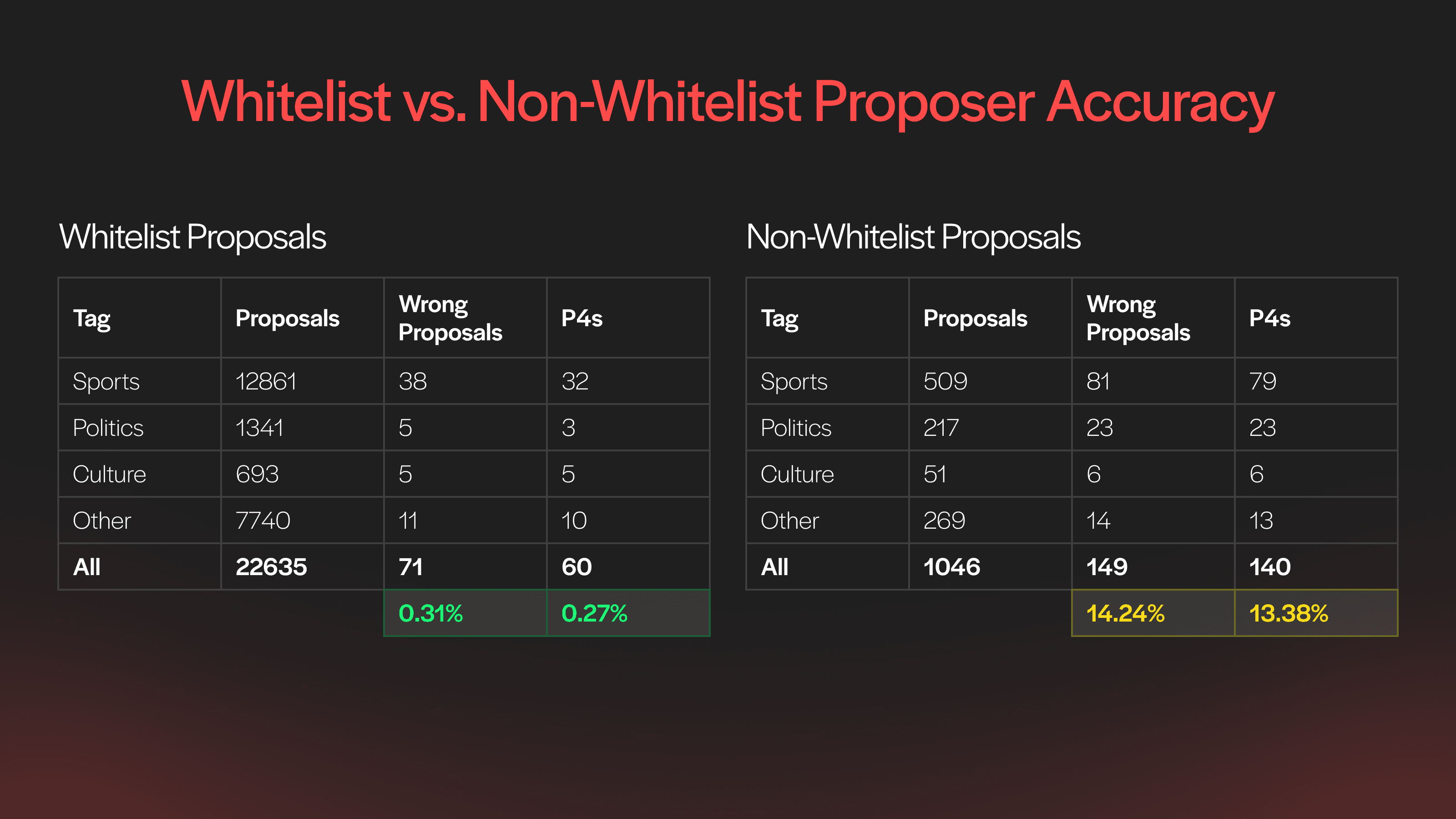
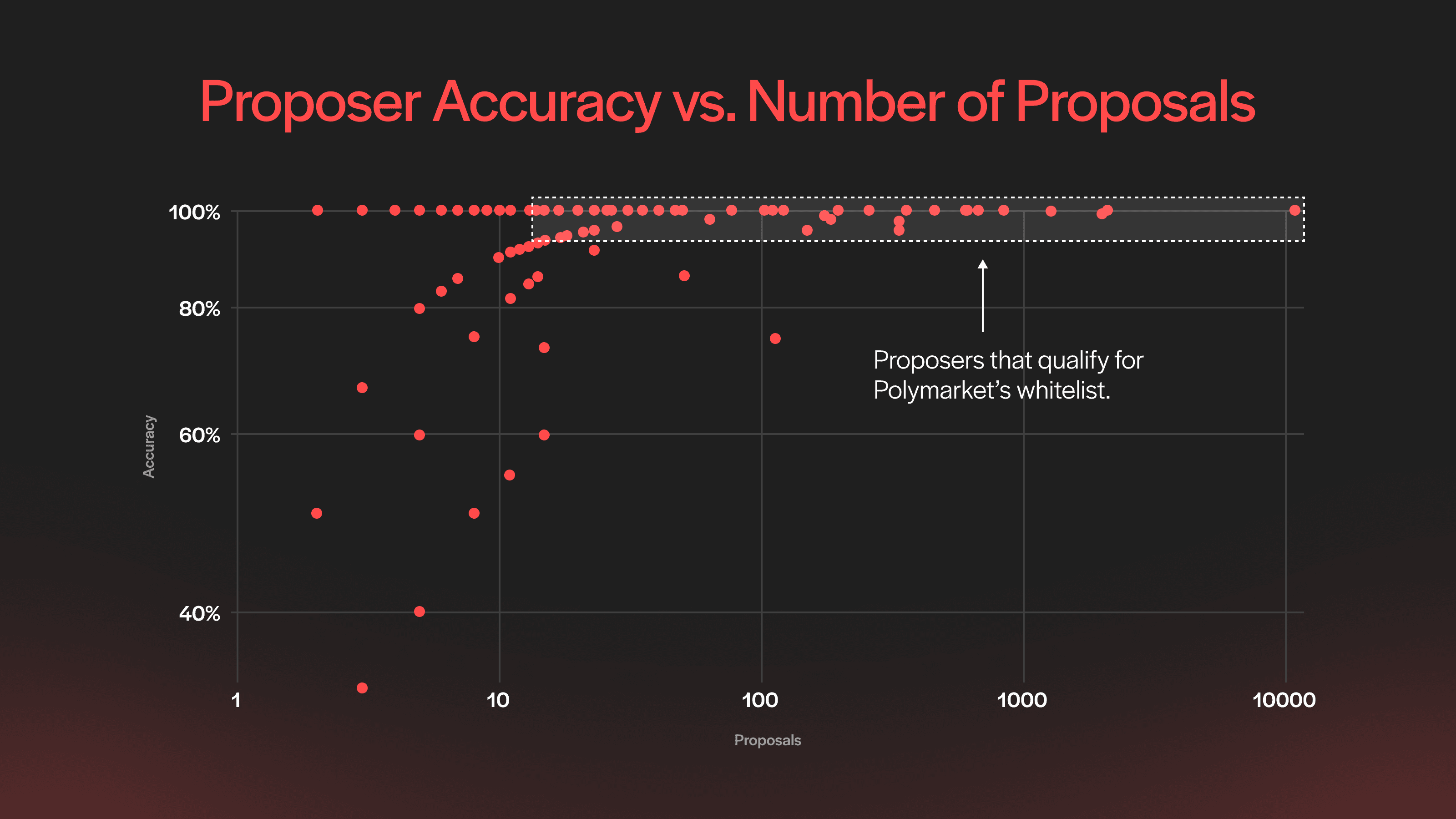
What This System Improves
We believe adding proposer whitelists provides benefits to our system and the applications that use it. Here’s how:
Fewer bad proposals reduce potential delays and governance overhead.
Faster, dispute-free resolutions improve user experience and trust.
Transparent whitelist guidelines provide visibility for everyone.
UMA enforces the whitelist logic, but integrations decide how to use it. This ensures accountability without centralizing control.
What Is Not Changing
There are a few aspects that are not changing worth keeping in mind:
Disputes remain 100% permissionless. Anyone can challenge a bad proposal, whitelisted or not.
UMA tokenholders still arbitrate the final truth. Economic skin in the game remains the ultimate backstop, and it’s 100% permissionless.
Proposal data remains transparent. Who proposed, when, and with what data remains publicly visible.
A Stronger Foundation for Onchain Truth
Proposers are the frontline troops in UMA’s optimistic oracle. They are critical to the system’s success and the applications that depend on its integrity.
By tightening the proposal layer while keeping disputes open, UMA is making truth verification faster, more reliable, and better suited for high-volume applications.
Prediction markets will resolve with less noise. Applications can customize their security without rebuilding the wheel. And the community can focus on verifying truth, not filtering out bad proposals.
Truth onchain is still open. Now it’s better protected.
